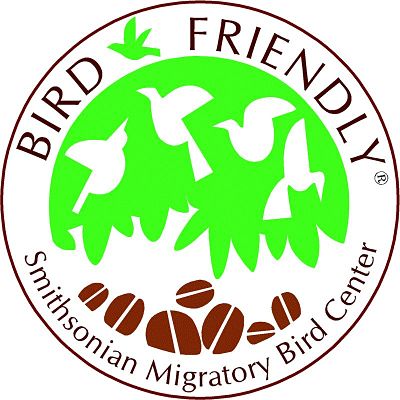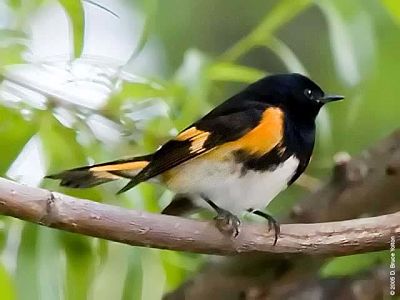Chances are you or someone close to you enjoys watching birds. According to the U.S. Fish and Wildlife Service, an estimated 47 million American’s birdwatch (making it one of the most popular pastime activities in the country). Take a walk through the Colgate forest on any given spring or summer day and you will notice that our trees are alive with some of North America’s most beautiful songbirds: warblers, thrushes, grosbeaks, tanagers, indigo buntings, orioles, and many others.
Chances are you or someone close to you enjoys drinking coffee. According to the National Coffee Association, over 600 billion cups of coffee are consumed each year making coffee the most popular beverage in the world. Take a walk through Colgate’s offices on any given day and you may notice the aroma of freshly brewed coffee. Students in Prof. Chris Henke’s Fall 2012 Community-Based Study of Environmental Issues (ENST 390) conservatively estimated that we (students, faculty, and staff) consume around 350,000 cups of coffee each year at Colgate. That’s a lot of coffee.
At this point, you may be asking: what do birds have to do with coffee? The answer: plenty! The songbirds breeding in our forest often winter in Latin America, the same region where most of our coffee comes from. In recent decades, millions of acres of tropical forestlands have been converted to industrial coffee plantations. These huge monocultures provide us with the inexpensive coffee found in our homes, offices, and restaurants but they have destroyed millions of acres of tropical bird habitat in the process. This is one of the reasons why many songbird populations are in decline.
In the mid-1990s, I participated in a long-term field study in the West Indies where we compared the biodiversity between industrial “sun” coffee plantations vs. more traditionally grown “shade” coffee plantations. We discovered that while shade coffee plantations produce about 30 percent less coffee (making shade coffee slightly more expensive), they contained about 90 percent more bird species when compared to sun coffee plantations. The coffee plant grows naturally under the canopy of native trees. As a result, shade coffee plantations can mimic an intact, ecologically functional forest that supports numerous plants and animals. I was amazed at the vast number of “our” songbirds that spent their winter in shade coffee plantations. Some of the individual birds we were tracking had returned to the same shade coffee plantation for nine consecutive winters!
Since those days, shade-grown coffee has become more popular and thousands of acres of coffee plantations have been reverted back to the more traditional method of growing coffee under the canopy of other trees. This is not only good for birds, but produces a higher quality coffee without all the chemical applications necessary in a monoculture.

So, if you want to support bird conservation while also enjoying your morning cup of joe, there is something we can do. Buy shade-grown coffee! You can purchase shade-grown coffee from many outlets including your local grocery store including Hamilton Whole Foods, Roger’s Environmental Education Center here in Sherburne, or order online from Birds & Beans. Look for the “Bird Friendly®” seal of approval from the Smithsonian Migratory Bird Center to help assure that the coffee you choose meets Smithsonian’s rigorous certification standards. And, if your office has a Keurig machine, you have the option of purchasing a reusable “My K-Cup” and filling it with your favorite shade-grown, bird-friendly coffee.
Hope you always enjoy the songbirds in our forests and the coffee in your mug!


